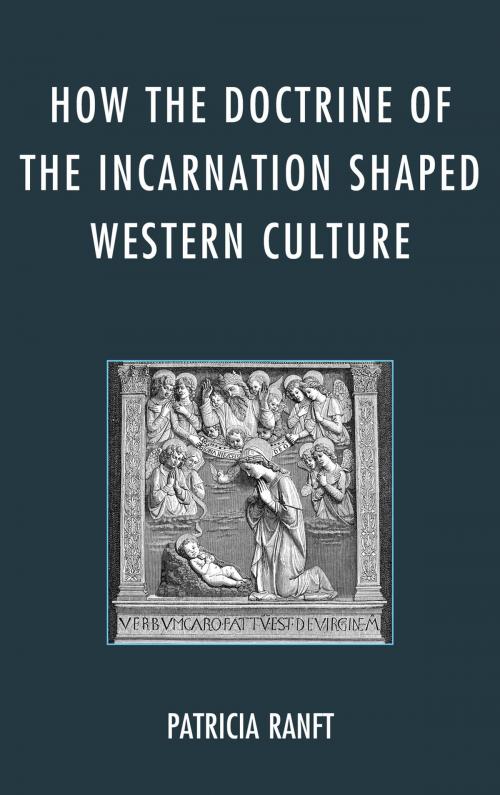How the Doctrine of Incarnation Shaped Western Culture
Nonfiction, History, Western Europe, Religion & Spirituality, Theology, Christianity, Church| Author: | Patricia Ranft | ISBN: | 9780739174333 |
| Publisher: | Lexington Books | Publication: | December 8, 2012 |
| Imprint: | Lexington Books | Language: | English |
| Author: | Patricia Ranft |
| ISBN: | 9780739174333 |
| Publisher: | Lexington Books |
| Publication: | December 8, 2012 |
| Imprint: | Lexington Books |
| Language: | English |
In recent years numerous scholars in disciplines not traditionally associated with theology have promoted an interesting thesis. They maintain that one particular Christian doctrine, the Incarnation, had an inordinate influence on the shape of Western culture. The doctrine, they say, was so radical that it mandated an epistemological break with pagan society’s perception of the universe and forced Christians to form a new culture. As medieval society worked out the consequences of the doctrine, it gave birth to those attitudes, institutions, and actions that define modern Western culture. The claims are well argued, but it is a historically untested thesis. How the Doctrine of Incarnation Shaped Western Culture is a response to the situation. It investigates whether the presence of the doctrine had the definitive effect on Western culture that so many scholars claim it did. It searches early Christian and medieval sources for evidence and concludes that the doctrine had a dominant effect on the developing culture. No other idea was as omnipresent or pervasive in Western society during its formative stage as the Incarnation doctrine. The doctrine was influential in the establishment of every major facet of Western culture. Its paradox, irrationality, and juxtaposition of opposites created a tension that cried out for resolution, and society responded accordingly. The ideas within the doctrine acted as catalysts for cultural change. As a result, the West developed its most characteristic traits and forged a path that was uniquely its own.
In recent years numerous scholars in disciplines not traditionally associated with theology have promoted an interesting thesis. They maintain that one particular Christian doctrine, the Incarnation, had an inordinate influence on the shape of Western culture. The doctrine, they say, was so radical that it mandated an epistemological break with pagan society’s perception of the universe and forced Christians to form a new culture. As medieval society worked out the consequences of the doctrine, it gave birth to those attitudes, institutions, and actions that define modern Western culture. The claims are well argued, but it is a historically untested thesis. How the Doctrine of Incarnation Shaped Western Culture is a response to the situation. It investigates whether the presence of the doctrine had the definitive effect on Western culture that so many scholars claim it did. It searches early Christian and medieval sources for evidence and concludes that the doctrine had a dominant effect on the developing culture. No other idea was as omnipresent or pervasive in Western society during its formative stage as the Incarnation doctrine. The doctrine was influential in the establishment of every major facet of Western culture. Its paradox, irrationality, and juxtaposition of opposites created a tension that cried out for resolution, and society responded accordingly. The ideas within the doctrine acted as catalysts for cultural change. As a result, the West developed its most characteristic traits and forged a path that was uniquely its own.















